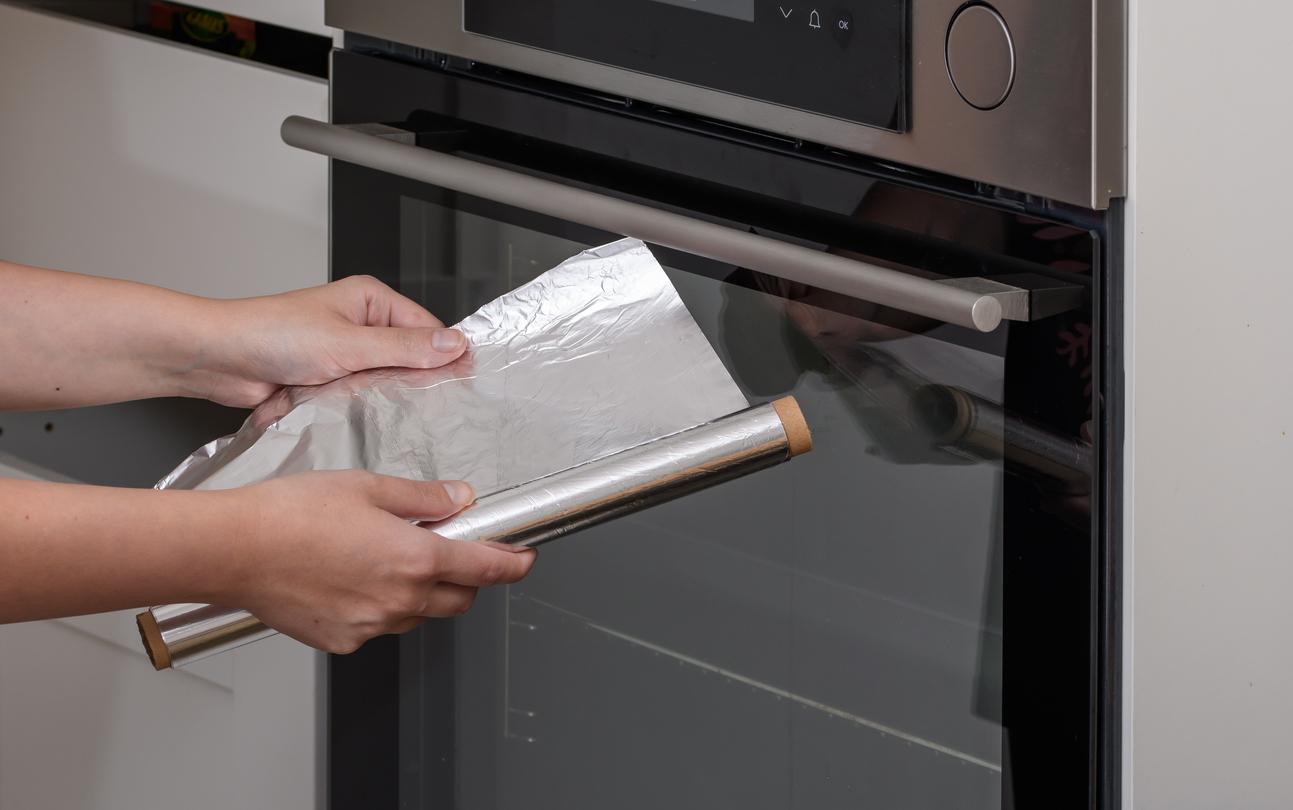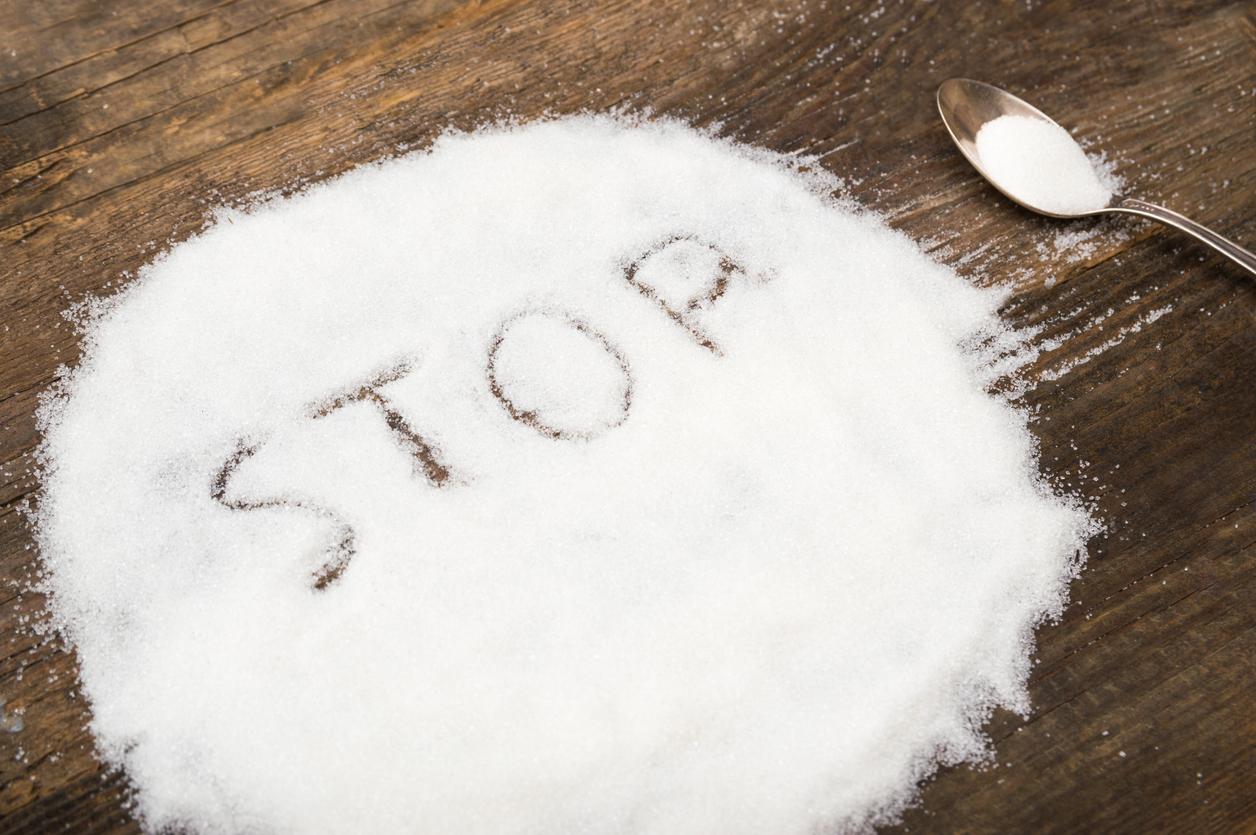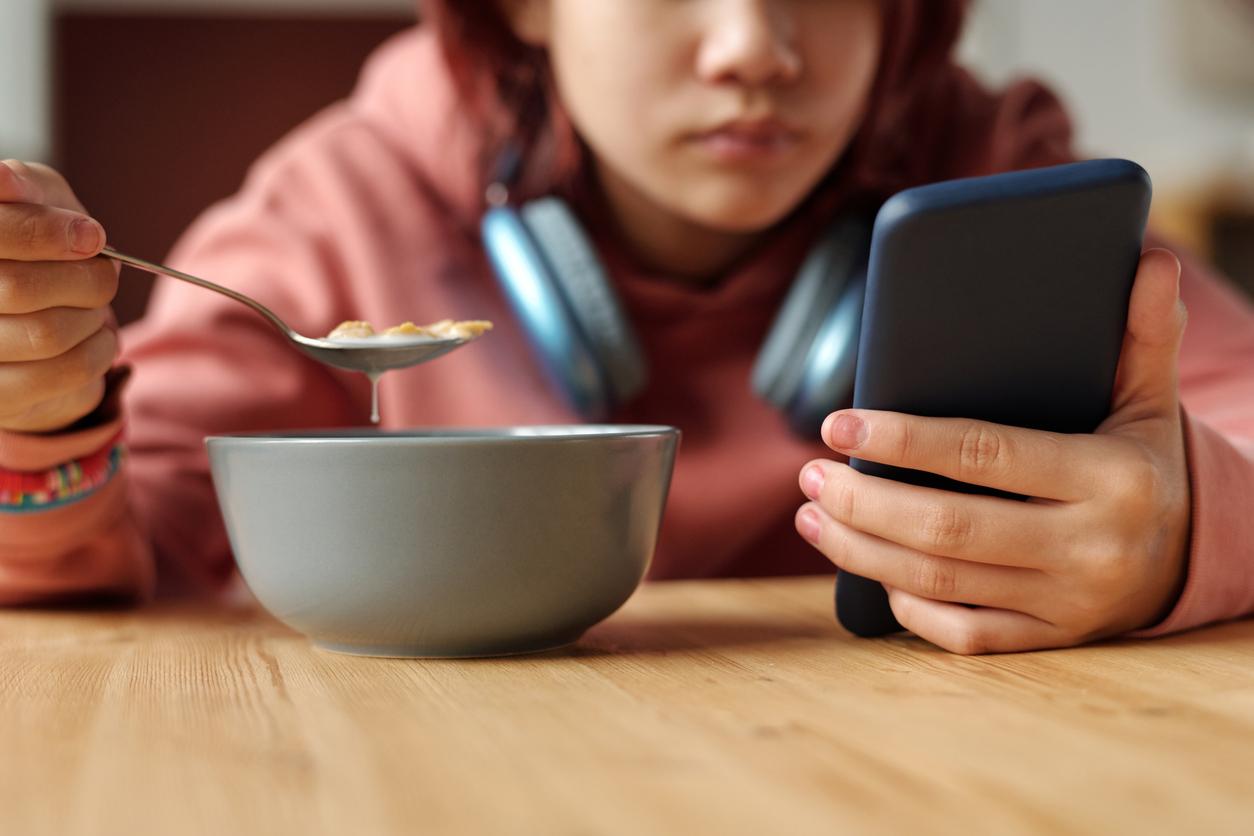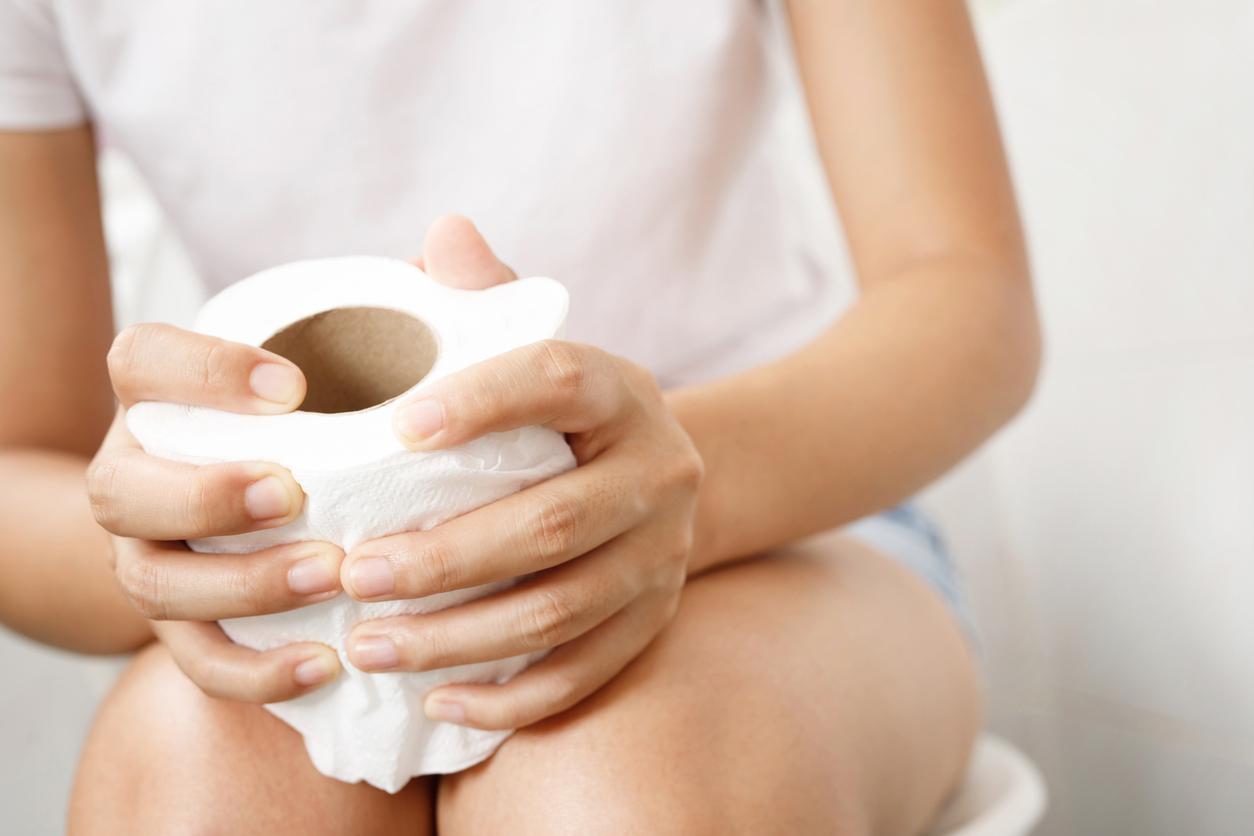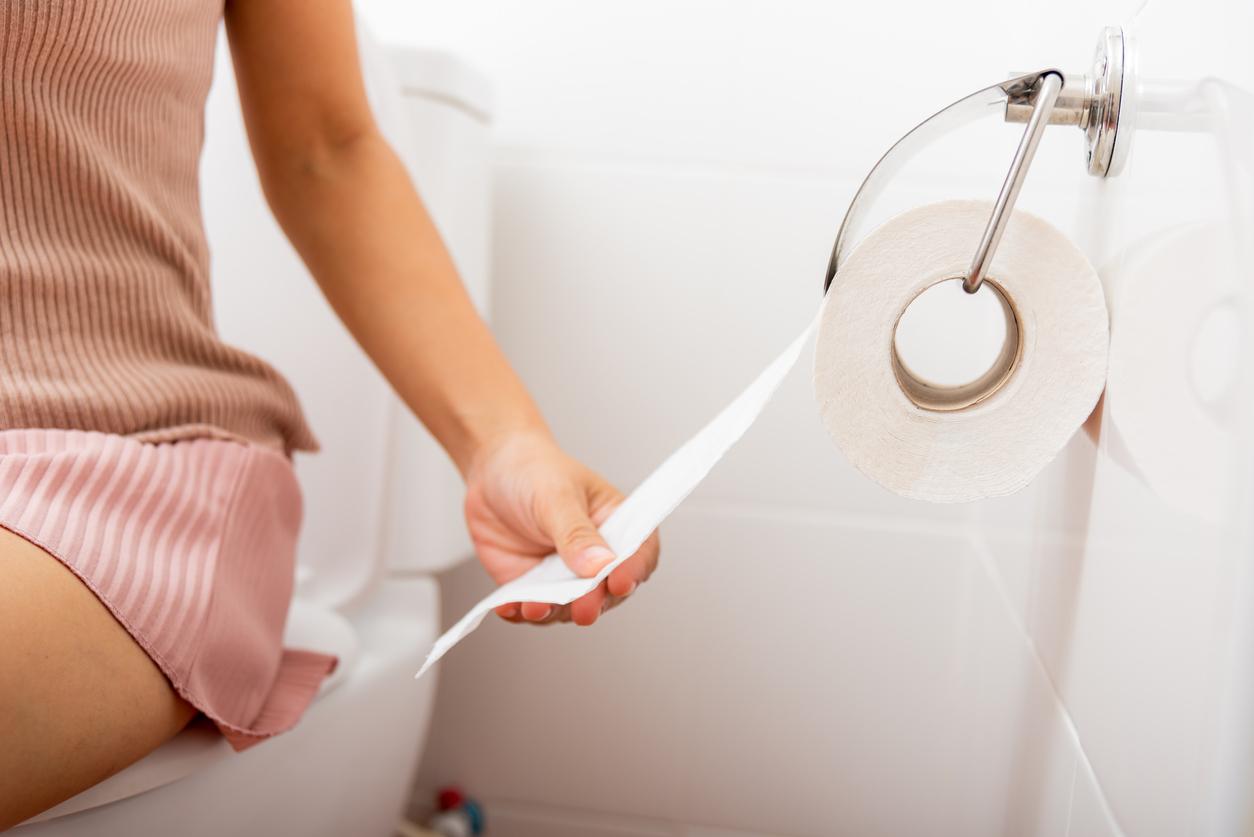No one escapes it, women even less than men. One day or another, you feel bloated, your stomach is heavy, you don’t have a bowel movement for two or three days when usually you’re settled like clockwork. In question, a change in eating habits, a lack of physical activity or hydration, unattractive toilets and no privacy…
Fortunately, most of the time, a few simple readjustments are enough: “Physical activity to stimulate transit, three meals a day and try to have a bowel movement about 30 minutes later” advises Professor Jean-Marc Sabaté, gastroenterologist, author of Irritable bowel, balance your microbiota and make peace with your colon (ed. Larousse). “If necessary, add a few prunes to your menu and mineral water with purgative effects (Hépar type).”
As for acute diarrhea accompanied by intestinal spasms, they most often occur after the ingestion of certain foods (of poor quality or in excessive quantity), an infection (viral or bacterial) or stress. Vegetable broth, rice and cooked carrots will usually do the trick in 48 hours. On the other hand, “if these transit disorders persist and are accompanied by abdominal pain, it is necessary to consult” underlines the expert. Could it be irritable bowel syndrome (IBS)?
Patients who perceive sensations more acutely
Formerly called irritable bowel syndrome, functional bowel disorder or functional colonopathy, IBS is manifested by persistent diarrhea or constipation, or an alternation of the two, for at least six monthswith abdominal pain at least once a week (spasms, stabbing, twisting, stinging, heaviness, etc.) and a change in the appearance of the stool.
“Bloating does not appear in the diagnostic criteria, deplores Professor Sabaté, even if 90% of people with irritable bowel syndrome also suffer from bloating and flatulence.” This syndrome most often appears gradually and without triggering factor, but in about 20% of cases, it follows acute gastroenteritis of bacterial origin (salmonella, shigella, campylobacter, etc.), psychological shock or stress. important.
Several mechanisms, isolated or associated, seem to come into play: some originate from the digestive tract, others from anomalies of the nervous system. We observe, for example, colon motricity disorders in 40 to 50% of these patients, an increase in the permeability of the intestinal wall which allows substances from the contents of the intestine to pass (food, faeces, bile acids, etc.). ). All these elements can then stimulate nerve endings or pass into the blood. Among the other mechanisms, there is a slowing of the evacuation of food at the level of the stomach (gastric emptying), an increase in the cells involved in the inflammation (lymphocytes, mast cells, etc.) of the wall of the digestive tract, an excess of certain bacteria in the intestinal microbiota… “These are also patients who perceive sensations (distention, pain, etc.) more acutely, we speak of visceral hypersensitivity.”
IBS: how to make the diagnosis?
The good news is that IBS never turns into a serious disease, even if it doesn’t protect against it either. The bad news is that “this syndrome can lead to an impairment of the quality of life as important, or even more, than depression or Crohn’s disease. And yet, it is still not always taken seriously” regrets Professor Sabate.
The explanation: not only do these symptoms seem trivial, but in addition no examination can confirm the disease. Physicians therefore proceed by elimination. The blood test (NFS, CRP, TSH, etc.) and colonoscopy can only rule out other pathologies with equivalent symptoms: celiac disease, hypothyroidism, chronic inflammatory bowel disease or digestive cancer. As for the analysis of the microbiota based on the search for the RNA of the bacteria present in our stools, “it has no interest either for the doctor or for the patient. It remains in the field of research. “
IBS: what treatment?
Faced with irritable bowel syndrome, the first treatment is food and personalized, because the associations between food and symptoms vary. For example, in some, meals high in fat increase the symptoms of IBS, in others it is dairy products… As for the coexistence of gluten intolerance and IBS, “it is rare and there is no reason to eliminate gluten from your diet, apart from proven celiac disease. It is also useless to have an antibody assay (IgG) carried out, because their presence does not mean that a food allergy or intolerance is the cause of IBS.
On the other hand, the consumption of ultra-processed foods (vegetable steaks, ready-to-heat meals, sodas, industrial sausages, powdered soups, etc.) is accompanied by a 25% increased risk of having IBS. It is therefore preferable to limit their consumption. Foods that contain FODMAPs (Fermentable, Oligosaccharides, Disaccharides, Monosaccharides And Polyols) also seem to play an important role in the persistence of symptoms.
These sugars promote water retention in the small intestine and ferment quickly on arrival in the colon. Result: sometimes diarrhea, a swollen belly, gas and abdominal pain.
Unfortunately, “these FODMAPs are found in almost all food groups, so the difficulty is to find the food or foods that promote these disorders” explains Blanche Vidal Soler, dietitian-nutritionist. We proceed in stages. During the first phase, you reduce your consumption of FODMAPs over a maximum of twelve weeks. If, at the end of the first 4 weeks of eviction, you do not perceive any improvement, you resume your usual diet. Otherwise we go to phase 2 and we start to reintroduce the FODMAPs, subtype by subtype, in increasing quantity. Eventually, in the last phase, we exclude or limit the consumption of all foods that cause unpleasant symptoms in us.
“The diet low in FODMAPs associated with hygiene and dietary advice is effective on pain and intestinal disorders in 75 to 85% of cases” assures the dietician. “Rather in 60 to 70% of cases depending on the studies” v tempers Professor Sabaté. In addition, mindfulness meditation, hypnosis and yoga are valuable aids.
And on the medication side?
At the doctor’s, “no reference treatment, but personalized care to reduce the frequency and intensity of symptoms, specifies Professor Sabaté. I offer validated treatments that act on different mechanisms, but I have no certainty about which one could be effective, so I do successive tests.”
We generally start with antispasmodics and transit modifiers, then, depending on the case, we move on to cholesterol-lowering drugs, serotonin receptor antagonists, antihistamines, etc. “If that doesn’t work, we change therapeutic class. When the improvement is transient, it is often linked to a placebo effect,” admits the doctor.
Read also :
- 10 foods that take care of our intestines
- Anti-constipation secrets of an osteopath
- Constipation: how to stimulate transit without a laxative



